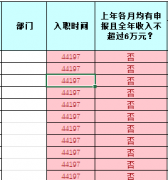问题描述
我想使用 Redis 在 NodeJs 应用程序和 PHP 应用程序之间共享服务器会话.我从这个 gist 中获取了大部分代码.
NodeJs 代码:
app.use(session({商店:新的RedisStore({前缀:'session:php:'}),name: 'PHPSESSID',秘密:'node.js'}));app.use(function(req, res, next) {req.session.nodejs = 'node.js!';res.send(JSON.stringify(req.session, null, ' ') );});它输出:
<代码>{曲奇饼": {原始最大年龄":空,过期":空,httpOnly":真,小路": "/"},护照": {},nodejs":node.js!"}PHP 代码(我使用 redis-session-php 和 Predis) :
require('redis-session-php/redis-session.php');RedisSession::start();$_SESSION['php'] = 'php';如果 (!isset($_SESSION["cookie"])) {$_SESSION["cookie"] = array();}var_dump($_SESSION);它输出:
array(2) {[php"] =>字符串(3)php"[cookie"] =>数组(0){}}问题:我希望两个会话看起来一样,但它们不一样(应用程序在同一个域上运行).使用 PredisClient 中的 set() 设置值有效(但值不会在会话变量上).我发现 这段代码我认为可以用, 使用 set() 和 get() ,但我觉得它会使代码过于复杂.
你知道我做错了什么吗?
我是要点的作者.该代码一直有效,直到 express-session 开始强制签名 cookie 并开始以不同的方式实现它们.
我已经更新了要点以使用最新版本的 express-session.为方便起见,以下是要点的副本:
app.js:
var express = require('express'),app = express(),cookieParser = require('cookie-parser'),session = require('express-session'),RedisStore = require('connect-redis')(session);app.use(express.static(__dirname + '/public'));app.use(function(req, res, next) {if (~req.url.indexOf('favicon'))返回 res.send(404);下一个();});app.use(cookieParser());app.use(会话({商店:新的RedisStore({//这是 redis-session-php 使用的默认前缀前缀:'会话:php:'}),//使用默认的 PHP 会话 cookie 名称name: 'PHPSESSID',秘密:'node.js 规则',重新保存:假,保存未初始化:假}));app.use(function(req, res, next) {req.session.nodejs = '来自 node.js 的你好!';res.send('<pre>' + JSON.stringify(req.session, null, ' ') + '</pre>');});应用程序听(8080);app.php:
<?php//这必须与 Express 应用程序中的 express-session `secret` 匹配定义('EXPRESS_SECRET','node.js 规则');//==== 开始快速会话兼容性 ====//这个 id mutator 函数有助于确保我们查找//使用正确 id 的会话定义('REDIS_SESSION_ID_MUTATOR','express_mutator');函数 express_mutator($id) {if (substr($id, 0, 2) === "s:")$id = substr($id, 2);$dot_pos = strpos($id, ".");如果($dot_pos !== 假){$hmac_in = substr($id, $dot_pos + 1);$id = substr($id, 0, $dot_pos);}返回 $id;}//检查现有的 express-session cookie ...$sess_name = session_name();如果(isset($_COOKIE[$sess_name])){//这里我们必须操作 cookie 数据以便//redis 中的查找工作正常//由于 express-session 现在强制签署 cookie,我们有//在这里处理...if (substr($_COOKIE[$sess_name], 0, 2) === "s:")$_COOKIE[$sess_name] = substr($_COOKIE[$sess_name], 2);$dot_pos = strpos($_COOKIE[$sess_name], ".");如果($dot_pos !== 假){$hmac_in = substr($_COOKIE[$sess_name], $dot_pos + 1);$_COOKIE[$sess_name] = substr($_COOKIE[$sess_name], 0, $dot_pos);//https://github.com/tj/node-cookie-signature/blob/0aa4ec2fffa29753efe7661ef9fe7f8e5f0f4843/index.js#L20-L23$hmac_calc = str_replace("=", "", base64_encode(hash_hmac('sha256', $_COOKIE[$sess_name], EXPRESS_SECRET, true)));如果 ($hmac_calc !== $hmac_in) {//cookie数据已被篡改,可自行判断//你想如何处理这个.对于这个例子,我们将//忽略 cookie 并生成一个新会话 ...未设置($_COOKIE[$sess_name]);}}} 别的 {//让 PHP 为我们生成一个新的 idsession_regenerate_id();$sess_id = session_id();$hmac = str_replace("=", "", base64_encode(hash_hmac('sha256', $sess_id, EXPRESS_SECRET, true)));//根据 express-session 签名的 cookie 格式对其进行格式化session_id("s:$sess_id.$hmac");}//==== 结束快速会话兼容性 ====require('redis-session-php/redis-session.php');RedisSession::start();$_SESSION["php"] = "你好来自 PHP";如果 (!isset($_SESSION["cookie"]))$_SESSION["cookie"] = array();echo "";回声 json_encode($_COOKIE, JSON_PRETTY_PRINT);回声 json_encode($_SESSION, JSON_PRETTY_PRINT);echo "</pre>";?>
I want to share the server session between a NodeJs app and a PHP app using Redis. I took most of the code from this gist.
NodeJs code:
app.use(session({
store: new RedisStore({prefix: 'session:php:'}),
name: 'PHPSESSID',
secret: 'node.js'
}));
app.use(function(req, res, next) {
req.session.nodejs = 'node.js!';
res.send(JSON.stringify(req.session, null, ' ') );
});
And it outputs:
{
"cookie": {
"originalMaxAge": null,
"expires": null,
"httpOnly": true,
"path": "/"
},
"passport": {},
"nodejs": "node.js!"
}
PHP code (I use redis-session-php and Predis) :
require('redis-session-php/redis-session.php');
RedisSession::start();
$_SESSION['php'] = 'php';
if (!isset($_SESSION["cookie"])) {
$_SESSION["cookie"] = array();
}
var_dump($_SESSION);
And it outputs:
array(2) {
["php"] => string(3) "php"
["cookie"] => array(0) { }
}
The problem:
I would expect both sessions to look the same, but they don't ( the app is run on the same domain ). Setting the values with set() from PredisClient works (but the values won't be on the session variable). I found this code that I think would work, using set() and get(), but I feel that it would overcomplicate the code.
Do you know what I am doing wrong?
I'm the author of the gist. The code worked until express-session started forcing signed cookies and started implementing them in a different way.
I have updated the gist to work with the latest version of express-session. A copy of the gist follows for convenience:
app.js:
var express = require('express'),
app = express(),
cookieParser = require('cookie-parser'),
session = require('express-session'),
RedisStore = require('connect-redis')(session);
app.use(express.static(__dirname + '/public'));
app.use(function(req, res, next) {
if (~req.url.indexOf('favicon'))
return res.send(404);
next();
});
app.use(cookieParser());
app.use(session({
store: new RedisStore({
// this is the default prefix used by redis-session-php
prefix: 'session:php:'
}),
// use the default PHP session cookie name
name: 'PHPSESSID',
secret: 'node.js rules',
resave: false,
saveUninitialized: false
}));
app.use(function(req, res, next) {
req.session.nodejs = 'Hello from node.js!';
res.send('<pre>' + JSON.stringify(req.session, null, ' ') + '</pre>');
});
app.listen(8080);
app.php:
<?php
// this must match the express-session `secret` in your Express app
define('EXPRESS_SECRET', 'node.js rules');
// ==== BEGIN express-session COMPATIBILITY ====
// this id mutator function helps ensure we look up
// the session using the right id
define('REDIS_SESSION_ID_MUTATOR', 'express_mutator');
function express_mutator($id) {
if (substr($id, 0, 2) === "s:")
$id = substr($id, 2);
$dot_pos = strpos($id, ".");
if ($dot_pos !== false) {
$hmac_in = substr($id, $dot_pos + 1);
$id = substr($id, 0, $dot_pos);
}
return $id;
}
// check for existing express-session cookie ...
$sess_name = session_name();
if (isset($_COOKIE[$sess_name])) {
// here we have to manipulate the cookie data in order for
// the lookup in redis to work correctly
// since express-session forces signed cookies now, we have
// to deal with that here ...
if (substr($_COOKIE[$sess_name], 0, 2) === "s:")
$_COOKIE[$sess_name] = substr($_COOKIE[$sess_name], 2);
$dot_pos = strpos($_COOKIE[$sess_name], ".");
if ($dot_pos !== false) {
$hmac_in = substr($_COOKIE[$sess_name], $dot_pos + 1);
$_COOKIE[$sess_name] = substr($_COOKIE[$sess_name], 0, $dot_pos);
// https://github.com/tj/node-cookie-signature/blob/0aa4ec2fffa29753efe7661ef9fe7f8e5f0f4843/index.js#L20-L23
$hmac_calc = str_replace("=", "", base64_encode(hash_hmac('sha256', $_COOKIE[$sess_name], EXPRESS_SECRET, true)));
if ($hmac_calc !== $hmac_in) {
// the cookie data has been tampered with, you can decide
// how you want to handle this. for this example we will
// just ignore the cookie and generate a new session ...
unset($_COOKIE[$sess_name]);
}
}
} else {
// let PHP generate us a new id
session_regenerate_id();
$sess_id = session_id();
$hmac = str_replace("=", "", base64_encode(hash_hmac('sha256', $sess_id, EXPRESS_SECRET, true)));
// format it according to the express-session signed cookie format
session_id("s:$sess_id.$hmac");
}
// ==== END express-session COMPATIBILITY ====
require('redis-session-php/redis-session.php');
RedisSession::start();
$_SESSION["php"] = "Hello from PHP";
if (!isset($_SESSION["cookie"]))
$_SESSION["cookie"] = array();
echo "<pre>";
echo json_encode($_COOKIE, JSON_PRETTY_PRINT);
echo json_encode($_SESSION, JSON_PRETTY_PRINT);
echo "</pre>";
?>
这篇关于如何使用Redis在NodeJs和PHP之间共享会话?的文章就介绍到这了,希望我们推荐的答案对大家有所帮助,也希望大家多多支持跟版网!



 大气响应式网络建站服务公司织梦模板
大气响应式网络建站服务公司织梦模板 高端大气html5设计公司网站源码
高端大气html5设计公司网站源码 织梦dede网页模板下载素材销售下载站平台(带会员中心带筛选)
织梦dede网页模板下载素材销售下载站平台(带会员中心带筛选) 财税代理公司注册代理记账网站织梦模板(带手机端)
财税代理公司注册代理记账网站织梦模板(带手机端) 成人高考自考在职研究生教育机构网站源码(带手机端)
成人高考自考在职研究生教育机构网站源码(带手机端) 高端HTML5响应式企业集团通用类网站织梦模板(自适应手机端)
高端HTML5响应式企业集团通用类网站织梦模板(自适应手机端)